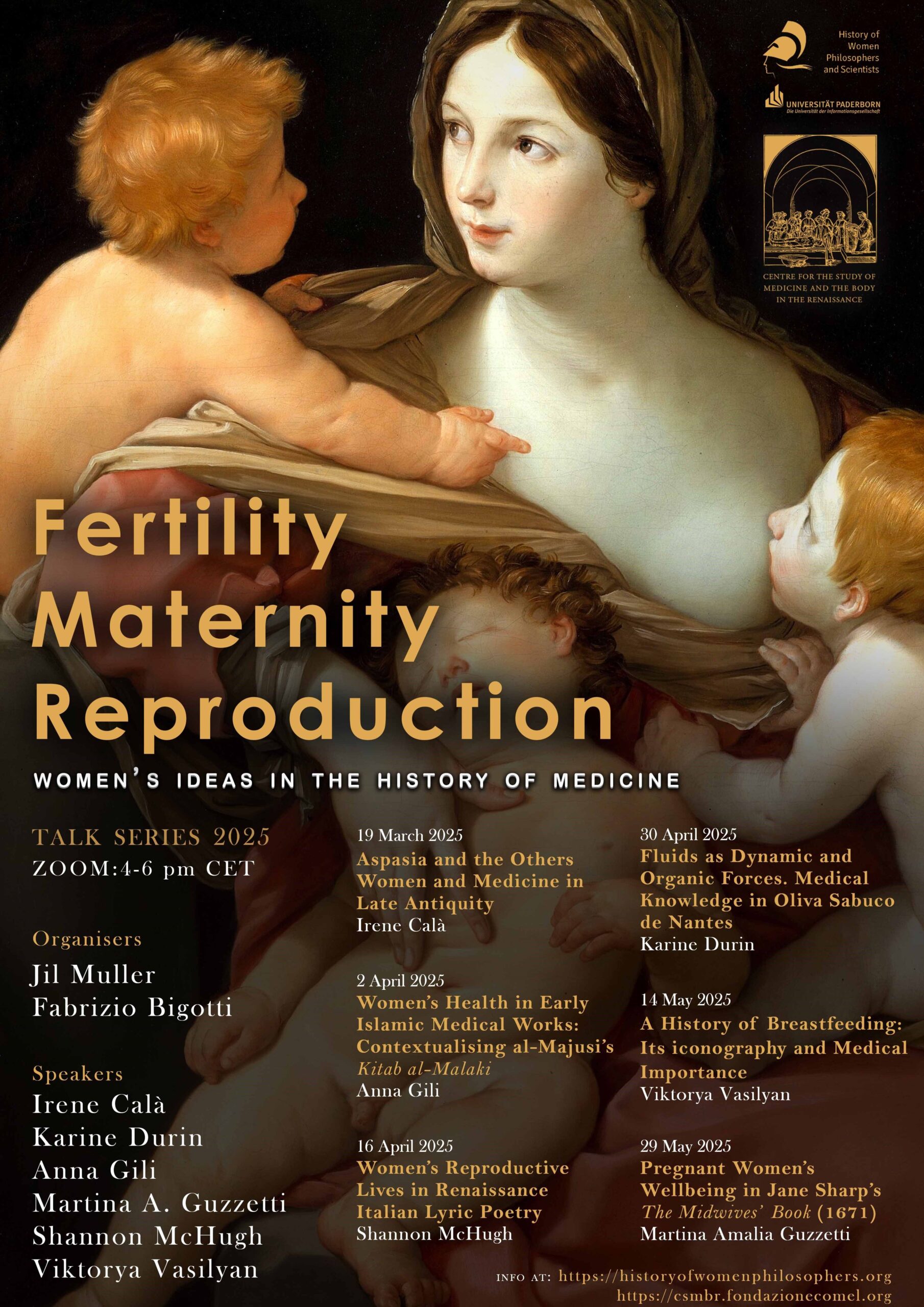Al-Maǧūsī, a Zoroastrian physician from the Fārs province, composed his Kitāb al-malakī during the second half of the tenth century. This medical encyclopaedia in ten books which aims to synthesize and systematize all earlier medical knowledge into a unified whole also devotes great attention to women’s health issues. Al-Maǧūsī’s analysis encompasses topics such as foetal formation, growth, and female anatomy along gynaecological diseases, the diet of pregnant women and the role of midwives, while also examining cures for gynaecological ailments and specific surgical operations.

New Voices Women’s Ideas in the History of Medicine
Talk | 4:00 PM - 6:00 PM | Dr. Jil Muller, Dr. Fabrizio Bigotti
Anna Gili: Women’s Health in Early Islamic Medical Works: Contextualising al-Maǧūsī’s “Kitāb al-malakī”
Based on the assumption that the Kitāb al-malakī should be studied as an organic treatise, my talk will present an overview of how and why reproduction, maternity, and fertility were considered relevant in the tenth century. I will also be assessing to what extent the Kitāb al-malakī relies on earlier sources and which innovations are contributed by al- Maǧūsī himself.
About the Speaker…
Anna Gili is a PhD student in Latin and Arabic philology at the University of Padua and the Julius-Maximilians-Universität Würzburg (cotutelle de thèse). Her main research interest is the transmission of medical knowledge from Greek into Arabic and from Arabic into Latin during the Middle Ages. Her PhD project aims to critically edit and study the books on pathology in the medical encyclopaedia al-Kitāb al-Malakī, composed by ʿAlī ibn al-ʿAbbās al-Maǧūsī (10th c.) and in its two Latin translations, namely the Pantegni by Constantine the African and the Liber regalis by Stephen of Antioch.
Everyone is welcome to attend. Please register here and you will get the Zoom-Link after registration.

- DATE
- 2 April 2025
- TIME
- 4:00 PM - 6:00 PM
- COSTS
- none
- INSTITUTION
- Dr. Jil Muller,
- Dr. Fabrizio Bigotti









 share
share tweet
tweet